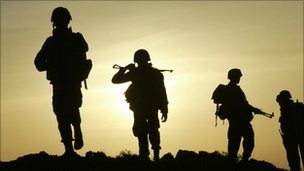 Sri Lanka’s prime minister has retracted his suggestion that Tamil Tiger rebels were being revived in camps in southern India.
Sri Lanka’s prime minister has retracted his suggestion that Tamil Tiger rebels were being revived in camps in southern India.
DM Jayaratne acknowledged his mistake by telling Sri Lanka’s Daily Mirror newspaper that his allegation was based on incorrect infomation.
Mr Jayaratne’s speech to parliament on Wednesday drew a sharp response from the Indian government.
He said rebel fighters were being trained to launch terror attacks.
Mr Jayaratne is a veteran politician who became prime minister last year said an unknown number of fighters were based at three clandestine training centres operated by the Liberation Tigers of Tamil Eelam (LTTE) itself in Tamil Nadu – the Indian state closest to Sri Lanka.
He said his government had intelligence reports that one of the camps was giving specialist training in how to assassinate VIPs.
"Their next target is to create small-scale attacks," he said. "The entire nation must be ready to face this threat."
‘Uncorroborated’
But on Thursday the spokesman for India’s Ministry of External Affairs rebuffed Mr Jayaratne’s remarks, saying Delhi "categorically" denied the existence of such camps and adding that the Colombo government had not raised such an issue diplomatically.
"Such a reference is indeed unfortunate and we urge the government of Sri Lanka to desist from reacting to speculative and uncorroborated reports," he said.
On Friday Mr Jayaratne told the Daily Mirror that accounts of the supposed camps were "mentioned in two newspaper reports".
"There appears to be false information in these reports," he said.
Most of the LTTE’s top leaders were killed as the Sri Lankan military crushed their decades-long insurgency in 2009. There has not been a rebel attack on the island since then.
A section of the Tamil Nadu population and several of its prominent politicians support the LTTE or at least Sri Lankan Tamil separatism.
In the LTTE’s early days in the 1970s and 1980s the then Indian government gave it and other separatist groups training and support.
But today’s Indian central government and the president of the Congress Party Sonia Gandhi, whose husband Rajiv was assassinated by the LTTE 20 years ago, are firmly opposed to the group.
It is banned as a terrorist organisation in India.
Emergency laws
The Sri Lankan prime minister made his controversial remarks during the monthly debate on extending the state of emergency, which has existed in Sri Lanka on and off since 1971 and which was renewed by MPs on Wednesday.
The emergency, along with the Prevention of Terrorism Act, gives the security forces far-reaching powers to arrest and hold people for long periods without trial.
The government says these laws are needed to combat a possible revival of the LTTE. It has given no indication of when the country might be able to reduce its state of alert.
Sri Lanka and India are diplomatic allies but recently there have been tensions between the two neighbours, small and large, over fishing rights in the narrow strait between the two countries.
Sri Lankan fishermen complain that Indians are intruding on their waters and using big trawler nets, depleting reserves and ruining their livelihood.
(For updates you can share with your friends, follow TNN on Facebook and Twitter )
